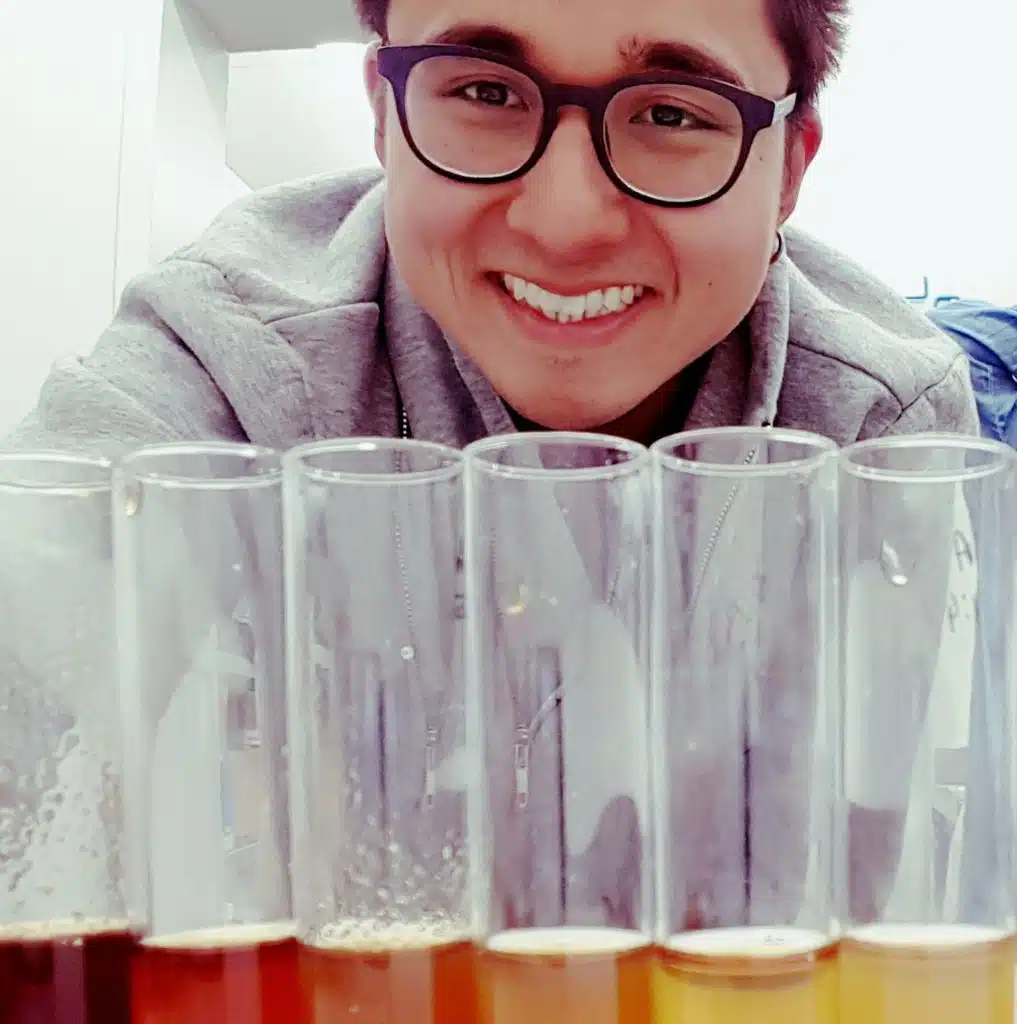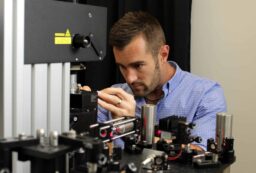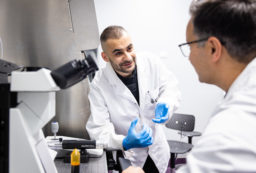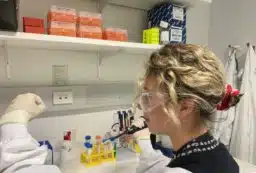If you’ve ever had a gut feeling about a relationship, there may be more science behind it than you realise.
A recent study in fruit flies has shown that the bacteria in their guts may impact who they choose to mate with, as well as the number and health of their children.
Macquarie University’s Dr Juliano Morimoto manipulated the bacteria in the guts of fruit flies (Drosophila melanogaster) so that they had either Acetobacter pomorum (AP), a bacterium common in vinegar; or Lactobacillus plantarum (LP), a bacterium common in dairy products.
Then he mated all the possible pairings of the AP and LP male and female flies.
“By measuring the number and body mass of children from AP and LP couples, I found that male flies with LP bacteria had sex for longer,” says Juliano, “and they produced more children than male flies with AP bacteria.”
“Females with either type of bacteria were more likely to be sterile after mating with an AP male, which suggests AP has a negative effect on male fertility.”
Juliano’s research also found that parents’ gut bacteria can have an effect on their children in some cases.
“Daughters whose parents both had AP bacteria had a lower body mass, than daughters where one or both parents had LP bacteria,” he says.
While Juliano’s research looked at fruit flies, it could be more relevant to humans than you might think.
“The majority of our genome is similar to the flies’, and many breakthroughs in science have come from studying fruit flies,” he says, “so it could be interesting to study how the bacteria in our gut influences our behaviour one day.”
Contact: Juliano Morimoto, Macquarie University, Juliano.morimoto@mq.edu.au
Banner image: Dr Juliano Morimoto with fruit fly food for experiments. (Credit: Macquarie University)






 Fresh Science is on hold for 2022. We will be back in 2023.
Fresh Science is on hold for 2022. We will be back in 2023.